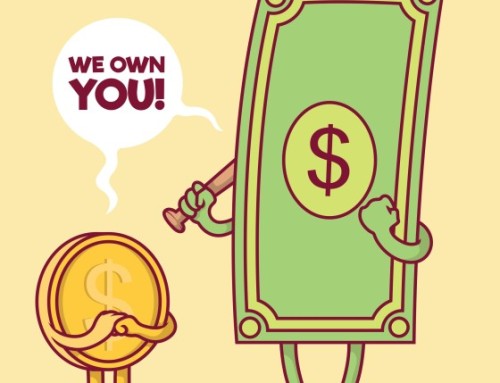Pros and Cons of Debt Consolidation
Debt consolidation loans typically offer a lower interest rate and more favorable terms than the initial loan or debt. They allow you to pay off bills more quickly, usually with a lower payment.
Here are some typical upsides of a consolidation loan:
Debt consolidation generally gives you more favorable loan terms, such as a more competitive interest rate. Moving several high-interest debts into a new loan helps you pay off your debt faster, with less of your payment going toward interest payments. Also, many credit cards have variable rates. So, consolidating them to a fixed-rate loan keeps you from paying more when rates go up.
A consolidation loan can also help you simplify your finances. Instead of making payments to multiple creditors, you make one payment. In fact, the new payment may be lower than your previous ones or may help you pay off debts faster than you would have under the original contract.
Moving your multiple debts to a single low-interest loan can help improve your credit score, especially if you’re falling behind on your monthly payments. Your payment history accounts for 35% of your credit score. So, paying a single monthly bill when it’s due should significantly raise your score over time.
A fixed-payment timeline makes it easier to work on long-term financial goals like saving for an emergency fund or your retirement. With a consolidation loan, you’ll have a fixed date for when you will be debt-free. And you can always pay off the loan faster by making more than the minimum monthly payment.
Are there downsides to a consolidation loan?
If overspending and irresponsible money management are what landed you in debt in the first place, consolidating on its own will not solve your problem. This is especially true if you’re not committed to paying the new loan off without taking on any new debt. Making a realistic budget and sticking to it can help you avoid ending up owing even more than you owed before. Building an emergency fund that can be used to pay for financial surprises can also keep you on track, so you don’t have to rely on credit cards.
Sometimes a consolidation loan may have a higher interest rate than your existing debts, especially if you have a low credit score. Moving debt to a new loan could extend the length of time it takes to pay it off. That means you may be in debt longer. It’s important to weigh whether a lower monthly payment is worth extending the term or having a higher rate.
Consider All Your Options
A debt consolidation loan may not be the best choice for you. Here are some other options that you might consider.
Home Equity Line of Credit
If you have equity built up in your home, a Home Equity Line of Credit (HELOC) may be an option to consider. Once you’ve established a HELOC, you can access it whenever you need it, for any purpose, which is more flexible than other ways to consolidate. Generally, a HELOC will have a lower interest rate and a longer repayment schedule, which means the monthly payments could be lower and more affordable. On the other hand, most home equity lines of credit feature a variable rate, so this type of loan could cost you more over time.
Credit Card Balance Transfer
Transferring to a low, fixed-rate credit card (especially one like ours with Rewards!) can make sense, depending on how much you owe. Often there is a balance transfer or cash advance fee to be considered, as well as how much the minimum payment will be after adding everything together.
No matter what your situation, the best tip for making a good debt consolidation decision is that you fully understand your financial situation. Getting out of debt is a journey and the most important decision you can make is to start the process of paying it off. Bring us your debt payments and let us help you see what will help you best. Once you’ve started the process, don’t forget to celebrate along the way. After all, with every payment you make, you’re one step closer to freedom from your debt.
Save Money. Affordable Payments. More Control.
Overcoming high-rate debt is possible.
We can help.





